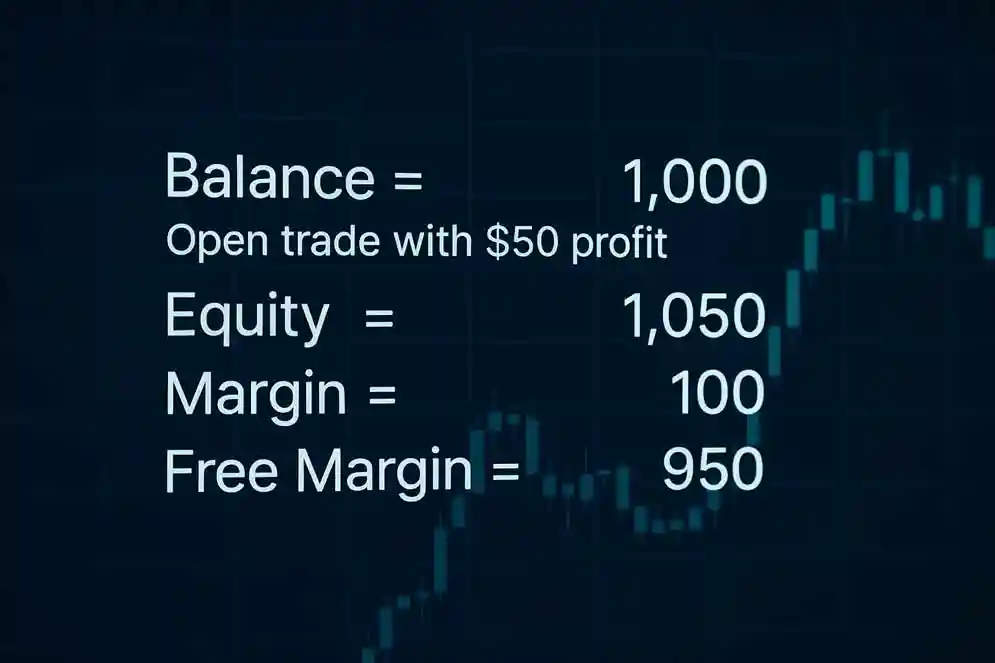Forex
+100 assets
Content table
8 mounts ago
5 min read
Written by Greenup24
In the world of forex trading, one of the first concepts every trader encounters is Balance — the account's current value. Although it may seem like a simple number at first glance, balance is actually the foundation for all calculations related to risk, trade volume, profit, loss, and even order execution.
A deep understanding of balance, and how it differs from other parameters such as equity, margin, and free margin, is essential for every successful trader. In this article, we’ll thoroughly and step-by-step explore this crucial concept.
Balance refers to the amount of money in your trading account, excluding any open positions. This value only changes when a trade is closed or when deposit/withdrawal actions are taken.
Example: If you deposit $1,000 and have one open position, your balance remains $1,000 — unless you close the trade.
| Term | Definition |
|---|---|
| Balance | Account balance after trades are closed |
| Equity | Balance + floating profit/loss from open trades |
| Margin | Amount of capital locked to maintain open positions |
| Free Margin | Available funds = Equity - Margin |
| Margin Level | Ratio of Equity to Margin, indicates account health |
Many beginners think floating profit is real and added to the balance. However, until a trade is closed, the balance remains unchanged.
Relying on a high balance without monitoring equity or margin may lead to overexposure and stop-out risks.
Effective balance management helps maintain discipline under all conditions.
Balance is the cornerstone of your forex trading account. Understanding how it differs from equity, margin, and unrealized profit/loss allows you to make smarter trading decisions. For a trader aiming to succeed professionally, managing balance isn't just a technical task — it's a strategic skill.
Want to experience how balance and equity change in a real-time environment without risk? Open a free demo account today at Greenup24.com and start your professional trading journey.


